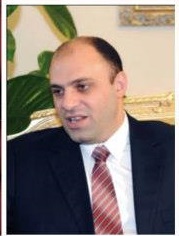By Mohamed Alaa El-Din
The current dollar crisis caused decreased the size of the company’s business by 50%, Abdel Moneim El-Khawaga, CEO of El-Motaheda Group G-TIDE and ARCOS devices’ agent said.
It also caused our foreign partners to hesitate about dealing with Egyptian companies or the Egyptian market, as [Egypt companies] were unable to fulfill their financial obligations.
He said the government considers mobile phones as provocative goods, even a necessity of life, particularly smart phones. El-Motaheda Company decreased its spending investment by 90% because of the dollar crisis and it caused damage to all economic sectors, highlighting the decline in the size and movement of goods at ports.
El-Khawaga said there is no solution to overcome this crisis except to lay off labor and reduce salaries, which the company is currently considering. He said El-Motaheda Group employs over 850 employees directly.
The current dollar crisis affected the company’s capabilities and reduced the size of their import shipments by 50%; the company now imports 5,000 devices instead of 10,000, Tarek Abdel Mohsen, Marketing Director of JoVi Tronix, HTC’s exclusive agent in Egypt said.
According to Abdel Mohsen, the current crisis contributed to the increase of smuggling mobile devices into Egypt. He said some 50-60% of the available devices in the market are smuggled. New shipments of some 20,000 devices are introduced every week. Smuggling causes losses to the state by EGP 100m – 150m each month, which could be avoided through customs and taxes.
Abdel Mohsen said the only winners of this crisis are smugglers, while legal companies and the state suffer due to low revenue of customs and taxes, since it affects the market.
Chairman of LG Electronics in Egypt, Ashraf Hamdy, said their company factory in the 10th of Ramadan City reduced its production of televisions and home appliances by 50% since January 2015, when the Central Bank of Egypt (CBE) decided to cap dollar deposits.
Hamdy said the company contacted CBE as well as the Ministries of Investment and Industries several times to find solutions – but in vain.
He said the factory requires dollar liquidity ranging from EGP 20m to 40m a month to provide targeted production quantities. The factory used to export up to seven Arab countries and 14 African states, according to the COMESA convection. Exports and overseas market accounted for 70% of the production quantity, according to Hamdy, who added that the company is considering lying off 10% of its workers under the production decline.




